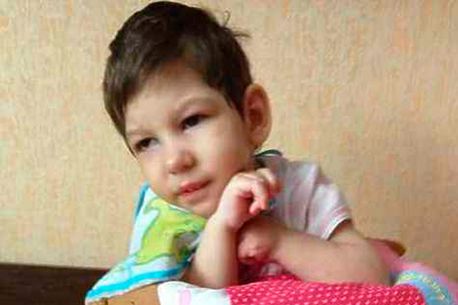In Liberia Ebola disrupts birth records, poses trafficking threat-UN
West Africa's Ebola epidemic has disrupted birth registrations in Liberia, leaving hundreds of thousands of children without citizenship and in danger of being trafficked or illegally adopted, the U.N. children's agency UNICEF said on Friday.
The closure of health facilities and limited health services due to the Ebola outbreak has halted Liberia's progress in registering births in recent years, according to UNICEF.
Before the Ebola outbreak in December 2013, birth registration rates in Liberia increased to 25 percent in 2013 from four percent in 2007, then the world's second lowest rate, according to the country's demographic and health surveys.
But the number of birth registrations fell to 48,000 in 2014 from 79,000 in 2013, before the onset of the virus, and only 700 children had their births registered between January and May this year, UNICEF said.
"Children who have not been registered at birth officially don't exist," said UNICEF's Liberia representative, Sheldon Yett.
"Without citizenship, children... risk marginalisation because they may be unable to access basic health and social services, obtain identity documents, and will be in danger of being trafficked or illegally adopted," he said in a statement.
The worst-known Ebola epidemic in history has killed more than 11,200 people, mostly in Guinea, Liberia and Sierra Leonesince the outbreak began in December 2013.
Liberia, worst hit by the outbreak last year, was declared Ebola free on May 9 even as new cases emerged in neighbouring Sierra Leone and Guinea.
But it reported one new case nearly two months later, on June 30, and five more cases since. Two patients died but the four others recovered, meaning there are no more confirmed carriers of the deadly virus in Liberia.
At least 100 people who came into contact with the six cases and are at risk of developing symptoms will remain under surveillance into August.
Health experts do not know why Ebola resurfaced in Liberia, but officials think sexual transmission is the most likely explanation, since the virus can persist in soft tissues of the body such as semen for up to 90 days.
UNICEF said it was working to revamp birth registration systems in Liberia ahead of a planned nationwide campaign later this year to reach all children not registered since 2014.
Some 250,000 children were registered during a recent five-day birth registration and polio vaccination campaign in Sierra Leone, where the Ebola epidemic also disrupted health services, according to the children's agency.

Comments
Post a Comment